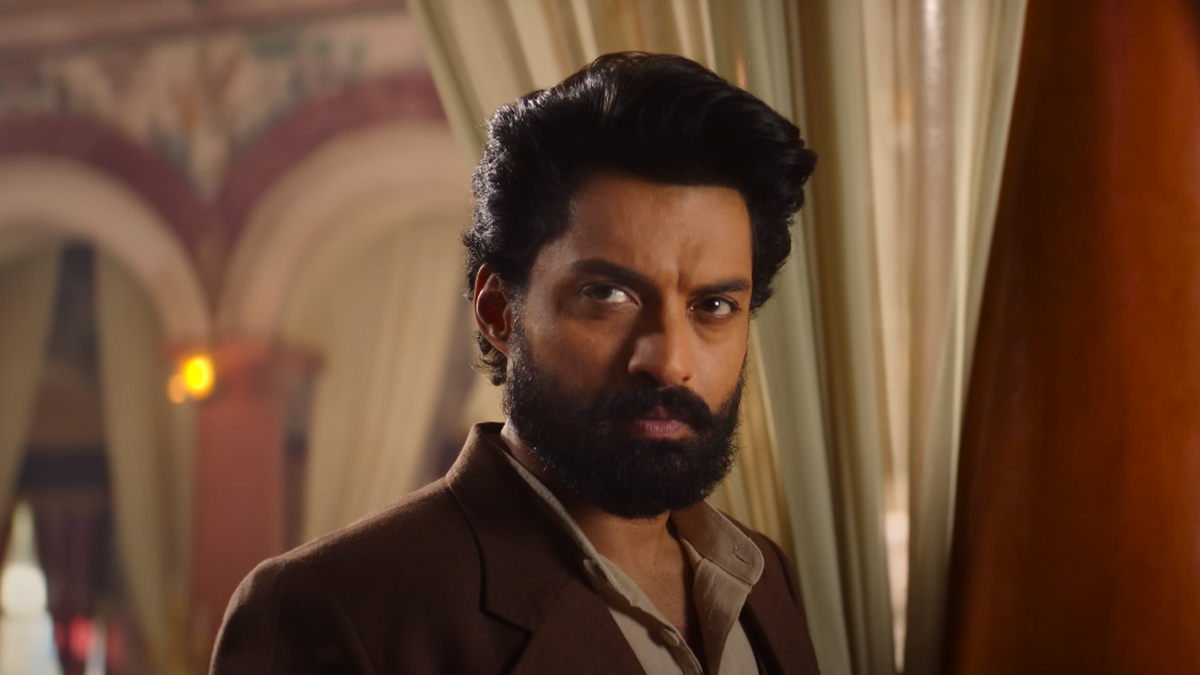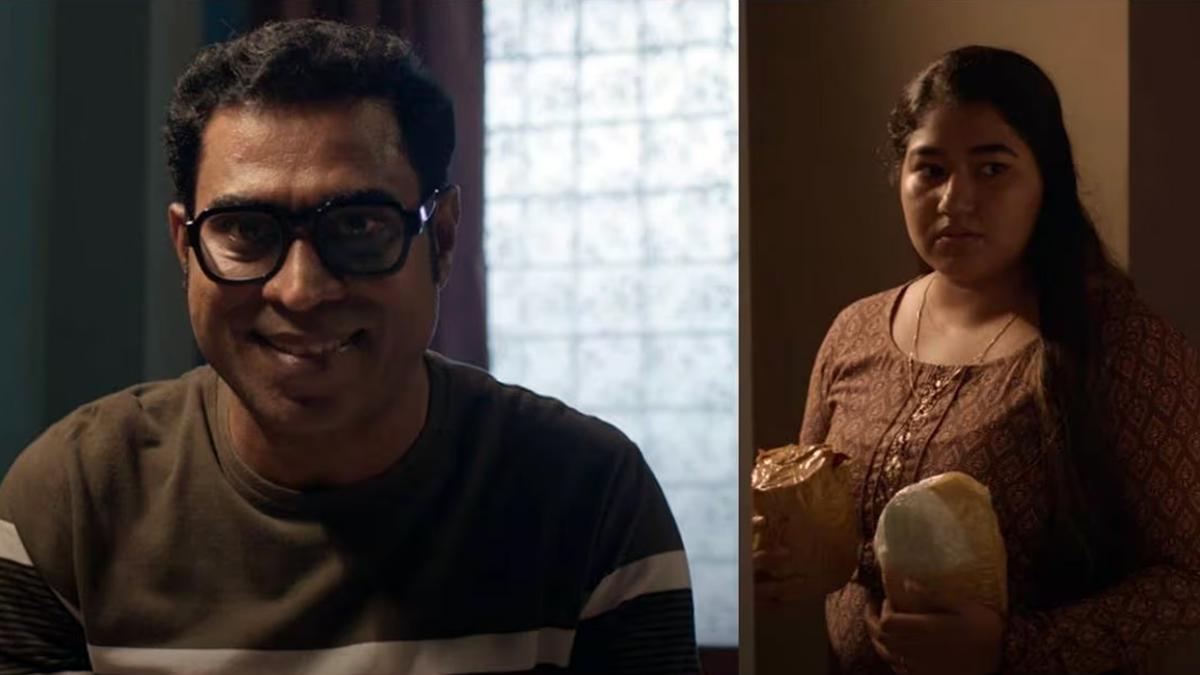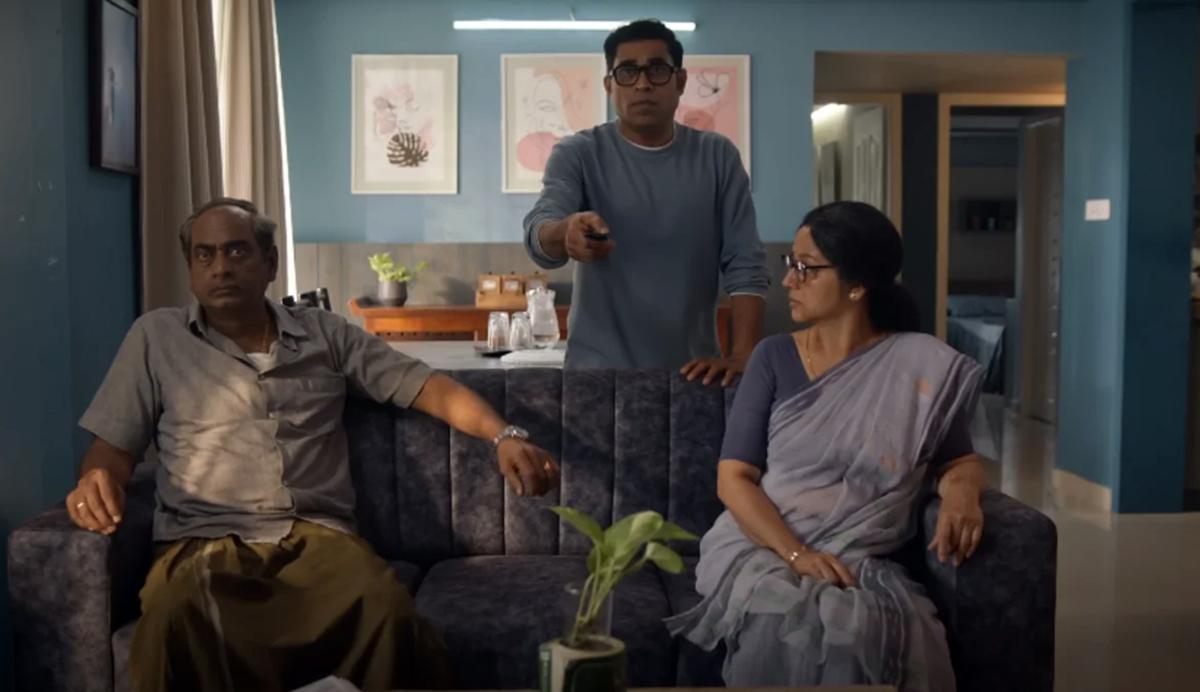Stepping out of Devil – The British Secret Agent, starring Nandamuri Kalyan Ram, it becomes clear that it is of utmost importance that we acknowledge the displeasing controversy that has arisen over the director’s credit. For the unversed, Devil has released with co-producer Abhishek Nama officially named as the director, after which, Naveen Medaram, who was initially credited as the director, alleged that the film is entirely his creation and that he was denied the recognition. The film is evidently a mammoth of an effort from the makers and that only makes the controversy even more disturbing.
So while we refrain from naming the director in this review, it must be stressed that this has been pulled off by a team with a conviction over an idea that most think tanks would deem outlandish, and a filmmaker who does show a certain flair for masala cinema. Now, has that translated into a perfect film? Far from it; there are one too many missteps and yet, you can’t help but be piqued by what they were going for.
Devil is a film that takes itself quite seriously from start to finish. Just picture this — in the opening sequence, a star like Nandamuri Kalyan Ram gets a grand entrance as Agent Devil, a British Secret Service agent, standing under the pride of the English flag, to save a British ship from pirates. Yes, you immediately know he wouldn’t end up as a British puppet (the promos don’t hide that as well) but that isn’t any ordinary frame you’d expect from a star of this age, and this is a film that has quite a few such surprises in store.
Devil – The British Secret Agent (Telugu)
Writer: Srikanth Vissa
Cast: Nandamuri Kalyan Ram, Samyuktha Menon, Mark Bennington, Sathya
Runtime: 160 minutes
Storyline: A British spy is assigned a murder investigation as a cover to intercept a message sent by Netaji Subash Chandra Bose to his right-hand man
It all begins as a whodunit investigative thriller set in the pre-Independence era. Under the instructions of the despicable Kenneth Bracken (Mark Bennington) — the typical evil Britisher you’d expect in any such period film — Devil is sent to the fictional town of Rasapadu in Madras to investigate the murder of a zamindar’s daughter, Vijaya (Ammu Abhirami). He gets a lackey in the form of Shashtri (Sathya in a thankless role) and he investigates several suspects involved in the case, only to fall for this mysterious woman named Nyshada (Samyuktha Menon), a relative of the zamindar.
Fans of the whodunnit genre may shudder to watch this Sherlock figure out the dexterity of the murderer or find corpses through the colour of the flame in a gas stove and so on, but with cards being played too close to the chest, the curiosity stays alight and you are almost eager to get through this stretch. In taking itself seriously, however, the film does ask you to overlook some irksome issues. It never bothers to explain why Bracken treats Devil with such respect and leniency at a time when even the royal class of Indians could never think of sitting with legs crossed in front of a British officer. But Devil is not the kind of film that wishes to delve into such aspects; it’s busy chasing bigger storytelling ambitions.
Now, why is a spy investigating a small-town murder? The investigation is a mere cover for Devil as he is assigned to intercept a message that freedom fighter Netaji Subhas Chandra Bose has sent to his right-hand man, Trivarna, that contains the details of when and where he is set to re-enter India after a four-year disappearance. So when he gets a clue, Devil turns his attention towards the mission but with an eye still on the zamindar’s case.
Intensity picks up, the plot thickens and after quite a few turns, we arrive at a terrific scene in the second half set inside a prison. Is it purely the function of the supposed twist in the tale? Not really. In fact, throughout Devil, it’s the smaller surprises that you make note of; the bigger twists are often predictable. It is the staging of this pulsating scene that captures your attention, and Kalyan Ram delivers the asks of it with panache. In fact, Kalyan Ram is the sole saviour shouldering this film, and you wish to see the Bimbisarastar continue taking up such novel scripts.
Where things go wrong for Devil is in its overt reliance on the dramatic aspects of the story; it’s as if the film is never content with itself and thus, it constantly tries to become something massy and unique. Now and then, you’d find the film moving away from its strengths to lean on unnecessary theatrics. Take for instance the character of Manimekhala (Malavika Nair), an Indian National Congress leader who draws Bose’s ideology to Hitler’s fascism only to immediately reveal herself as a member of Bose’s Indian National Army. Just as you ponder about the ifs and hows of it connecting to modern-day political discourse, she gets utterly reduced to a pawn in the plot, serving only for unnecessary slow-motion-background-score-thumping shots and a twist or two for the hero.
The climax is where this becomes most apparent. None of what the film sets out to do comes together, only to leave you with a poor aftertaste. That you get both a murder mystery and an espionage thriller in the same film and that it had several genuine ideas and some good twists and turns is perhaps how one would wish to remember this film.
Devil – The British Secret Agent is currently running in theatres




























/cdn.vox-cdn.com/uploads/chorus_asset/file/25782636/247422_ChatGPT_anniversary_CVirginia.jpg)
/cdn.vox-cdn.com/uploads/chorus_asset/file/25789444/1258459915.jpg)

/cdn.vox-cdn.com/uploads/chorus_asset/file/25546252/STK169_Mark_Zuckerburg_CVIRGINIA_D.jpg)


/cdn.vox-cdn.com/uploads/chorus_asset/file/23951353/STK043_VRG_Illo_N_Barclay_3_Meta.jpg)